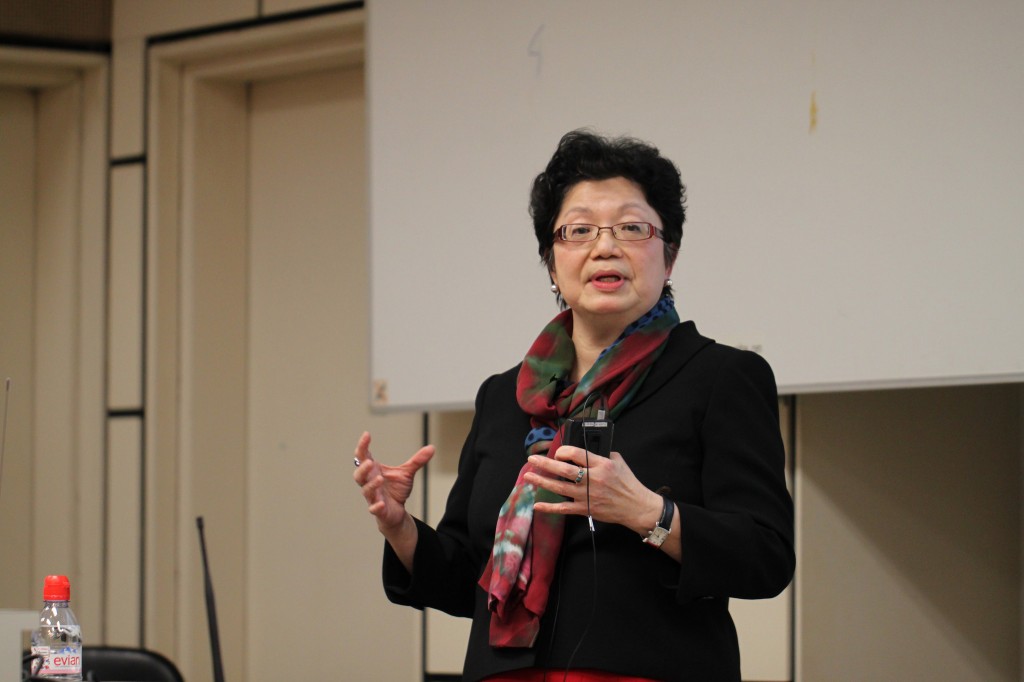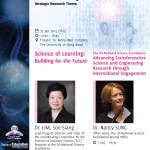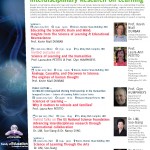Science of Learning: Building for the Future

Lead Program Director and Chair of the Coordinating Committee for the Science of Learning Centers (SLC) Program at the US National Science Foundation
Q&A session: 6:30 pm – 6:45 pm. This invited talk is one of Winter Institute 2015 activities.
Abstract
Learning is central to advancing human performance and capability. It is critical throughout the lifespan, enabling organisms to develop its full potential and to adapt successfully to ever-changing environments. In 2003, the US National Science Foundation established the Science of Learning Centers (SLC) Program to advance fundamental knowledge about learning (in humans, other animals and machines) through integrated, interdisciplinary research. In addition to discovery and knowledge generation, other goals of the program are to connect the research to specific scientific, technological, educational, and workforce challenges; to enable research communities to capitalize on new opportunities and discoveries; and to respond to new challenges. This presentation will include highlights of research that integrate efforts across multiple disciplines, including biology, education, neuroscience, social and psychological sciences, engineering, computational and informational sciences, mathematical and physical sciences. NSF investments in the SLCs have created rich environments for interdisciplinary student training and yielded significant infrastructure and resources vital to this emerging community of interdisciplinary Science of Learning researchers. Future NSF investments in Science of Learning will build on the momentum created by the SLCs, to continue the vigor of interdisciplinary research on learning, and to further engage the international community so that our collective efforts can make a difference in education, technology innovation, and workforce preparation.
About the speaker
Soo-Siang Lim, Ph.D is the Lead Program Director and Chair of the Coordinating Committee for the Science of Learning Centers (SLC) Program at the US National Science Foundation (NSF). She has led this Program since 2004, when the first SLCs were established to provide intellectual, organizational and physical infrastructure for addressing large-scale, complex problems about learning in humans, other animals and machines. Related to these interests, she was a member of a NSF Task Force for Innovation in Learning and Education, and is a member of the Interagency Task Force for Arts and Human Development spearheaded by the National Endowment for the Arts, in partnership with the U.S. department of Health and Human Services. Dr. Lim was a member of the Peer Review Team for the UNESCO Division of Basic and Higher Education, and has participated in a number of activities with the Organization for Economic Cooperation and Development (OECD), including the co-organization of two major international conferences to discuss advances in our understanding of learning and their implications for educational practice and policy.
Prior to her leadership of the SLC Program, Dr. Lim served as the Cluster Leader for the six Neuroscience programs in the Biological Sciences Directorate at the NSF, and as Program Director of the Neuronal and Glial Mechanisms Program. Other previous and present responsibilities include active roles in a number of large-scale, interdisciplinary efforts such as the Engineering Research Centers Program, the Science and Technology Centers Program, Cyberlearning Transforming Education Initiative, Integrative Graduate Education and Research Traineeship Program, Nanoscience and Engineering Initiative, and the Research Coordination Networks Program.
Prior to joining the National Science Foundation (NSF) in 1999, she was an Associate Professor in the Department of Anatomy and Cell Biology at Indiana University, School of Medicine, where she led an active research program in cell biology and neuroscience. She received her Ph.D in Anatomy from the University of North Dakota, followed by post-doctoral training and subsequent scientist appointments at the University of Wisconsin-Madison.
This talk is one of
◎Research Seminar
Invited Talks on The US National Science Foundation: Advancing interdisciplinary research through international collaboration
Related event
◎Winter Institute
Winter Institute 2015
Stimulating and Incubating Interdisciplinary Research on Learning




